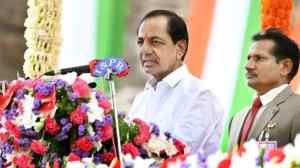This Ramadan, a look at how Zakat is being channelled to empower vulnerable communities
With Zakat collections during Ramadan estimated between Rs 10,000 crore and Rs 40,000 crore, community-driven initiatives are streamlining distribution to alleviate poverty, provide education, facilitate legal aid, etc.
 In recent years, several community organisations have stepped up, using advocacy, education, outreach, and technology to maximise the impact of Zakat. (Express Archive Photo)
In recent years, several community organisations have stepped up, using advocacy, education, outreach, and technology to maximise the impact of Zakat. (Express Archive Photo)Ramadan, the holiest month in the Islamic calendar, is often associated with fasting and elaborate evening Iftars. However, beyond the shared meals and prayers, one of the important aspects of this month is the obligation of Zakat, an essential act of charity that requires Muslims to donate a portion of their wealth to those in need. With estimates suggesting Zakat collections could range from Rs 7,500 crore to Rs 40,000 crore during this period, there has been a concerted effort to streamline its distribution to help alleviate poverty.
In recent years, several community organisations have stepped up, using advocacy, education, outreach, and technology to maximise the impact of Zakat. These initiatives not only ensure that Zakat reaches the most vulnerable populations but also support projects such as providing food, funding education, and even offering legal assistance to prisoners unable to afford bail.
Zakat is a religious obligation for Muslims, required from those who possess a certain minimum amount of wealth, known as the nisab. The nisab is the threshold that determines whether a person is financially eligible to pay Zakat. It is typically calculated based on the value of gold or silver: any person whose wealth is equivalent to 87.5 grams of pure gold or 612.36 grams of silver is eligible to pay Zakat. The amount is pegged at 2.5 per cent of their total income, assets, and savings, and is expected to be given to a needy person.
India has 17.18 crore Muslims, accounting for 14.2 per cent of the country’s population. However, there is no exact estimate of how much Zakat is collected in India. A statistical paper presented in 2005 during a seminar organised by the Zakat Foundation of India, a non-governmental organisation (NGO) dedicated to facilitating the collection and distribution of Zakat, had pegged the amount at Rs 10,000 crore that was derived by analysing government data on household income of various religious groups.
Community activists, however, state that with time, the number has gone up substantially higher and could now be in the range of Rs 40,000 crore.
This amount, however, often gets fragmented. It is either distributed in small amounts to individuals or directed towards madrassas to fund religious education. While numerous groups in India collect Zakat and utilise it for community work, historically a large portion of this money goes into funding madrassas, with very little focus on the empowerment of the broader community.
From legal fees to educational loans
Over the years, several organisations have emerged to facilitate the effective distribution of Zakat. One such platform is Indazakat.com, launched by the Mumbai-based Association of Muslim Professionals (AMP), where individuals can send their Zakat, which is then distributed to those in need.
While individuals may lack the resources or infrastructure to distribute Zakat properly, NGOs play a crucial role. With their organisational capacity, transparency, and strong community reach, they are key players in managing and distributing Zakat effectively, helping to alleviate the socio-economic challenges faced by the community.
In 2024, AMP’s initiative successfully raised Rs 5 crore, which was distributed among over 2,000 individuals to support education, livelihood assistance, and medical care.
“Thousands of crores of rupees are distributed as Zakat annually in India. Despite this vast amount, the tangible impact on the upliftment of the community remains limited. The involvement of community-based NGOs in the distribution of Zakat ensures that, through their advocacy, education, outreach, and use of technology, we can maximise the impact of Zakat on society and ensure that it reaches the most vulnerable populations,” said Aamir Edresy, founder-president of the AMP.
Zakat funds are also used to help free prisoners who cannot afford to secure their bail. One such initiative, launched by Jamiat Ulama-i-Hind, a socio-religious body aimed at the welfare of the Muslim community and the promotion of Islamic values, utilises Zakat money to provide assistance to impoverished prisoners.
“The Quran and Hadith outline eight categories in which Zakat can be used, one of which is to assist those in bondage and captivity. In today’s world, many people languish in jails simply because they cannot afford the legal fees to fight their cases. We use Zakat funds to provide them with the necessary support,” said advocate Shahid Nadeem, legal advisor for Jamiat Ulama-i-Hind.
Over the years, the organisation has used these funds to support the legal defence of over 500 disadvantaged individuals, many of whom have been granted bail or acquittals due to this crucial assistance.
Similar initiatives have been launched in various parts of Maharashtra, where organisations collect funds to ensure that the money is channelled toward uplifting the lives of individuals in need. In many cases, beneficiaries who receive assistance through Zakat have returned the money once their financial situation improves.
“We have had hundreds of cases where students, whose education was funded by Zakat, have come back to return the money when their circumstances improve. We have observed that among the majority of recipients, there is a strong desire to repay the help they received during difficult times. We believe that one of the most significant impacts of Zakat, apart from alleviating immediate hardship, is the sense of reciprocity it fosters—encouraging those who benefit to help others in turn and cultivating a culture of mutual support,” said Mukhtar Shaikh, a member of Nashik-based Ayesha Welfare and Charitable Trust.












